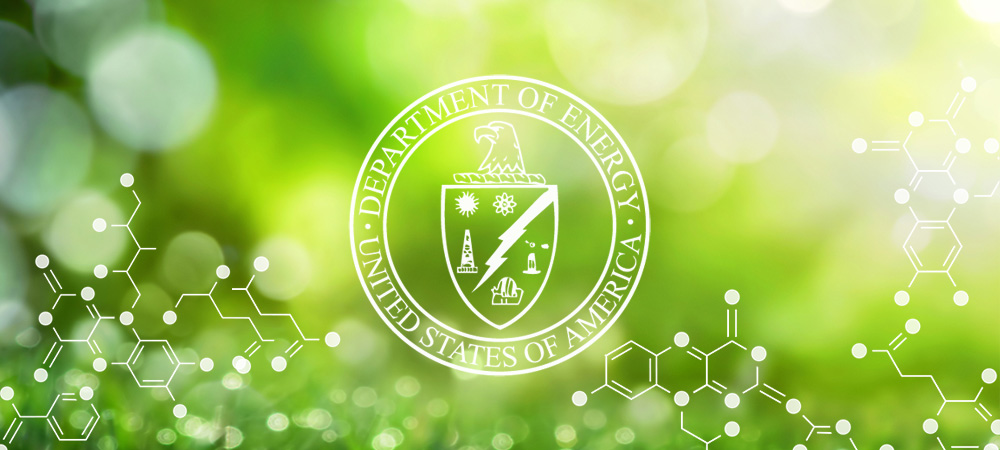Department of Energy funds milestone North Carolina-led initiative to advance solar energy research
July 31, 2020

Editor's note: The following news release was issued by the University of North Carolina at Chapel Hill. Chemists from the U.S. Department of Energy’s Brookhaven National Laboratory will be key partners in this effort, bringing their expertise in the design, characterization, and optimization of molecular catalysts and extensive experience in research on artificial photosynthesis to the challenge of solar-to-fuel energy conversion. Brookhaven Lab will also provide access to world-class research tools, including the Chemistry Division's Accelerator Center for Energy Research, the National Synchrotron Light Source II (NSLS-II), and the Center for Functional Nanomaterials (CFN)—the latter two being DOE Office of Science user facilities. For more information about Brookhaven Lab’s role in this research or to interview Brookhaven Lab scientists, contact Karen McNulty Walsh, kmcnulty@bnl.gov, 631 344-8350.
The U.S. Department of Energy (DOE) will provide $100 million in funding to new artificial photosynthesis research projects, including a $40 million award to the North Carolina-based Center for Hybrid Approaches in Solar Energy to Liquid Fuels (CHASE) to accelerate fundamental research of the production of fuels from sunlight.
The University of North Carolina at Chapel Hill leads the CHASE partnership, which will work to develop hybrid photoelectrodes for fuel production that combine semiconductors for light absorption with molecular catalysts for conversion and fuel production.
CHASE will blend experiment with theory to understand and establish new design principles for fuels-from-sunlight systems. The CHASE group will receive $40 million over five years to support researchers working to evolve solar energy technology to meet the world’s increasing energy needs.
More than 35 investigators at six institutions – Brookhaven National Laboratory, Emory University, North Carolina State University, the University of Pennsylvania, UNC–Chapel Hill and Yale University – are partners in the CHASE effort.
“We have assembled a very strong team to set brand–new directions in this field,” said Gerald Meyer, director of the CHASE Hub. “Our focus is to use the sun’s energy to directly generate storable liquid fuels.”
The CHASE proposal was developed under the guidance of the UNC Solar Energy Research Center, SERC, founded in 2008 to serve as a regional hub for solar energy research. Its mission is to develop new ways to capture and store energy of the sun in the high-energy chemical bonds of carbon-based solar fuels. A DOE Energy Frontier Research Center, EFRC, established at UNC in 2009, provided foundational research on renewable energy and leveraged North Carolina’s role as a national leader in solar energy production.
“With this support, CHASE will build on a strong foundation of solar energy research here at UNC and establish critical new partnerships that will enable the transformative scientific advances needed to realize liquid solar fuels,” said Jillian Dempsey, deputy director of the CHASE Hub.
A second partnership funded by DOE, the Liquid Sunlight Alliance (LiSA), headquartered at the California Institute of Technology, will receive $60 million to pursue an approach called “co-design,” which seeks to streamline the complicated steps needed to convert sunlight into fuels to make the process more efficient.
LiSA and CHASE will succeed the Joint Center for Artificial Photosynthesis (JCAP), the DOE Fuels from Sunlight Energy Innovation Hub, which was established in 2010, and is concluding this year.
The DOE Fuels from Sunlight Energy Innovation Hub program will continue through the combined efforts of LiSA and CHASE. Both are expected to build on the accomplishments of JCAP, as well as several DOE Energy Frontier Research Centers and core research efforts devoted to artificial photosynthesis.
“Sunlight is the world’s most basic energy source, and an ability to generate fuels directly from sunlight has the potential to revolutionize the U.S. energy economy,” said Under Secretary for Science Paul Dabbar in a press release announcing the awards. “This effort will keep America at the forefront of artificial photosynthesis research, a field of great challenge but also huge promise.”
The Department’s investment in the Fuels from Sunlight Energy Innovation Hub program represents a continuing large-scale commitment of U.S. scientific and technological resources to this highly competitive and promising area of investigation.
For more information on the Fuels from Sunlight Energy Innovation Hub program, including advances and tools from JCAP, please visit their website.
Brookhaven National Laboratory is supported by the Office of Science of the U.S. Department of Energy. The Office of Science is the single largest supporter of basic research in the physical sciences in the United States and is working to address some of the most pressing challenges of our time. For more information, please visit science.energy.gov. Follow @BrookhavenLab on Twitter or find us on Facebook.
2020-17355 | INT/EXT | Newsroom









